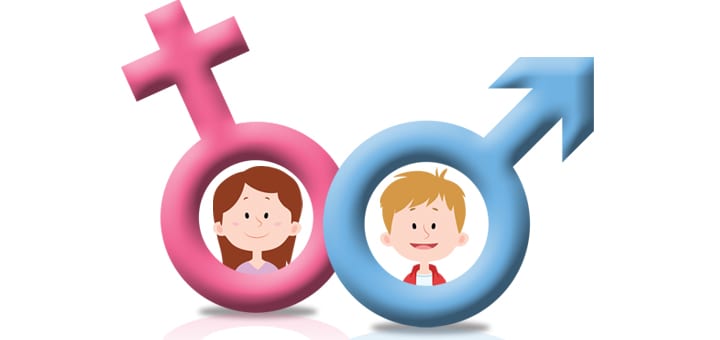“There is so much guilt and shame and fear imbued in people because they don’t have any place where they can get permission to accept themselves as sexual beings.” – Patti Britton, Ph.D., A.C.S.E.
Introduction
The approach towards sex education programs has serious limitations around the world. High-quality Comprehensive Sexuality Education (CSE) is science-based, medically accurate and age-, developmentally, and culturally appropriate. It addresses the physical, mental, emotional, and social dimensions of human sexuality for young people. Still, sex education is either taught vaguely or has been largely ignored in many countries.
We can trace the history of sex education to the late 19th century as an effort of the Progressive Education movement. However, it became a concerning issue in the mid-20th century owing to a rise in teen pregnancy. Moreover, sex education became an urgent matter with the outbreak of AIDS. Institutes such as Mathematica came up with abstinence-based programs that “promoted abstinence till marriage” but proved ineffective.
Benefits of Sex Education
The right sex education can benefit the adolescent population to a great extent. It can reduce the number of unintended pregnancies and sexually-transmitted diseases. It can also help prevent sexual abuse and dating-related violence. Consequently, teenagers and young adults can develop healthy relationships. It is true that young students can learn about their sexual identity through many sources – parents, peers, medical professionals, social media and pop culture.
However, it is so easy to come across misleading or factually incorrect information. It is important that they gain this knowledge from the right sources. Trained professionals can better convey this information and answer any questions that the young adults might have.
Some might argue that this is a private subject and parents should explain it to their children. Of course, children should be able to talk to their parents about the act of sex and sexuality. However, sex education isn’t just about “having the talk”. It is a comprehensive topic that branches across social, health and emotional affairs. Parents can remove their own inaccuracies and personal biases by taking a formal training in the subject before talking to the children.
Sex Education Around The World
In countries where religion plays a large role in their culture, societies prohibits conversations about sexuality. Any dialogue or education related to sexual health is fear-based and extremely biased. Surprisingly, the Unites States of America, among many other countries, has a conservative approach to sex education. Many states across the US do not have set guidelines for sex education and only 22 states mandate it. There are only 13 states that require the instructions to be medically accurate, while there are 25 states that emphasize abstinence as part of sex education.
In contrast, countries in the European Union (EU) have taken a more holistic approach towards sex education. Nearly all countries of the EU mandate it. There is still a variation in its execution across the continent. For example in Austria, parents are part of the sexuality education lessons. Schools in Denmark invite experts such as HIV-positive individuals and prostitutes to speak about their experiences.
Sex education is a complicated issue in India. Being a country with conservative values, it prohibits discussion about sexuality. But, it also has the largest adolescent population in the world. This means that sex education is a topic that requires discussion to maintain healthcare standards. The extensive history of sexual violence and abuse in India is a major health risk for the population. With the right approach to sex education, adolescents can understand issues such as early pregnancies, STD’s, sexual abuse and violence better.
Overlooking sex education in India, poses a health risk to the adolescent population. Its initial purpose was to reduce teen pregnancies and spread STDs. But countries such as India should also focus on sex education in order to prevent sexual abuse and violence. Sex is a taboo topic in our country. Adults hide it from the adolescents even at the mention of it in textbooks and media to maintain “purity” of their minds. It is “vulgar” to even discusses. But sex is not vulgar. Sexual violence and abuse are vulgar. We need to distinguish them. I think illiteracy has played a role in the prevalent sexual violence in India. A proper education will help the youth adopt healthy practices and attitudes towards sex.
Conclusion
Growing up in India, I did not receive a formal sex education. I have been raised in a culture where discussing anything sexuality-related is a taboo. It wasn’t until years later that I realized how little I know about sexual health. Till date, I am flustered talking (or writing about it). I am a product of the environment I grew up in. I don’t wish that for our younger generation.
We’re in the 21st century and there is no reason that we should avoid sex education. It is an important subject that is crucial for a young adult’s health and safety. It is easier to make safer choices and have healthier outcomes when one is informed. Adolescents need sex education to make mature decisions. It is our responsibility and duty as adults to provide a safe space for holistic education for these young impressionable minds.
About The Author

Deepa Chandrachud recently completed her Bachelor’s degree in Finance from Bentley University. She is deeply passionate about gender equality and hopes to use this platform to create more awareness about issues pertaining to women’s rights.
Editor: Anushka Bhartia
Photo Credit: Parenting Special Needs
Some other blog posts you might like:
Image Source:
